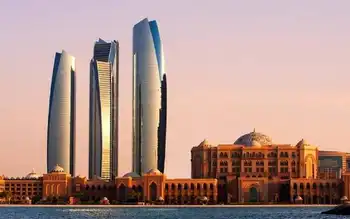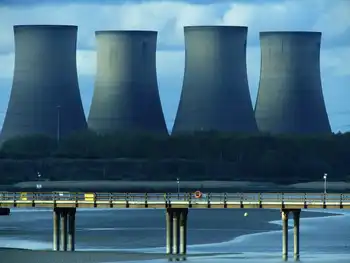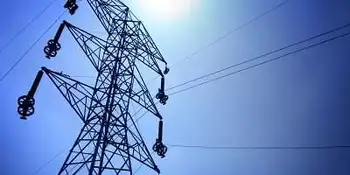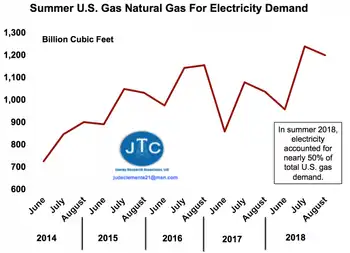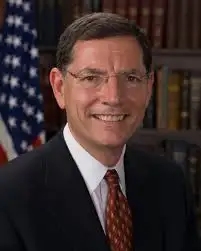Military intervenes during power outages
By The Epoch Times
CSA Z463 Electrical Maintenance
Our customized live online or in‑person group training can be delivered to your staff at your location.

- Live Online
- 6 hours Instructor-led
- Group Training Available
"The city is militarized since early hours of the morning (from January 26) and will remain like that as long as its necessary in order to avoid further confrontations in the city of Mérida," said Marcos DÃaz, governor of Mérida State.
Waves of protests erupted throughout all of Venezuela on January 23, in response to rationing of water; new increase on the devaluation of the Venezuelan currency; and the recently established weekly rationing of electricity.
Even larger protests were triggered after the government ordered the blocking of six television channels. Among them was “RCTV Internacional", a channel characterized for having an editorial style critical of the government. The government suspended the channels on the grounds of “not complying with Venezuelan laws,” for refusing to broadcast nationally chained transmissions of presidential speeches.
Protests escalated in Mérida to violent confrontations with police. Two students have been reported killed and close to 30 students and policemen have been reported wounded.
The governor of Mérida, declared the military action is due to the presence of "snipers and urban warfare in the state," which aim "to subvert order." He noted that the National Guard and the state government are taking measures to control these groups that, according to the governor, allegedly belong to the opposition.
El Trigal Highway was taken by the military in the city of Valencia, capital of Carabobo State. The soldiers said it was a precautionary measure to prevent further unrest among the population.
There is a tense uncertainty among residents in Venezuela. Many fear the conflicts will continue to escalate.
The events are viewed as what could be the beginning of the end for Chavez. The National Assembly is occupied by an overwhelming majority of government supporters. A victory by the opposition could limit Chavez's ability to implement laws and policies to his liking.
Things have not changed much since Venezuela President Hugo Chavez took office 11 years ago. Many residents believe that the situation has instead worsened. For Chavez the protests are a further inconvenience, as they are taking place in the same year the legislative elections will be held.
Questions about recent events have gone unanswered. In the last several days, two officials have renounced their positions without providing explanations. The vice president of Venezuela who is also the defense minister — renounced his position (his wife, the environment minister, also renounced). Even the president of the Bank of Venezuela has renounced his position, saying he has health problems.
After the disastrous rationing of electricity, Chavez asked the minister of energy to renounced as well. The rationing of electricity was so poorly implemented that states outside Caracas were often without electricity for up to nine hours. The plan was implemented the day it was announced. Another plan to ration electricity will be implemented soon.
Before it was blocked, “RCTV Internacional” continued to broadcast its signal through private cable networks despite having been denied a renewal of its broadcasting concession as a national channel by the Venezuelan government two years ago. This concession was instead granted to a new channel called TVes (Social Venezuelan Television).
The situation led to numerous protests around the country and residents complained that their freedom of speech was being violated. Several months after the protests, “RCTV” changed its name to “RCTV Internacional” and began broadcasting through cable and satellite networks.
The Venezuelan government said that as soon as television channels are willing to comply with Venezuelan law, their signals will be restored on cable and satellite networks. The claims, however, have not deterred the ongoing protests.
The international community has condemned the actions of the Venezuelan government.
"The Rapporteur exhorts the government to reconsider these measures, and to re-establish the guarantee to freedom of expression and opinion and the proper respect to procedures," said a statement from Frank La Rue, the special rapporteur of the United Nation's Special Rapporteur on the Promotion and Protection of the Right to Freedom of Opinion and Expression.
His statement adds that the international treaties and internal legislation should be respected as well. La Rue noted that no tribunal ordered the closing of the television channel. He added that, “Any closure of a media must obey a previously established legal procedure, conducted by an independent state authority, and cannot be the product of an administrative decision by the government.”
Human Rights Watch director José Miguel Vivanco said in a statement that, “In 2009, Hugo Chávez forced radio and TV stations to broadcast live 141 speeches, including one which he prolonged for 7 hours and 34 minutes. Now he also wants to punish those channels that refuse to spread his personal political agenda.”
During an OAS (Organization of American States) meeting in Washington recently, the United States, Colombia, Peru, Panama, and Canada also condemned the Venezuelan government for its decision to suspend the six channels.
The Venezuelan government has not taken the criticism well. The French Ministry of Foreign Affairs requested the Venezuelan government to "reverse quickly" its decision in order to guarantee the "pluralism of information."
The Venezuelan government responded harshly by rejecting the claims, saying in a statement, “The comments from the spokesman of the French Ministry of Foreign Affairs are unacceptable and reprehensible, and they prejudice against the principle of noninterference with the state's internal affairs.”





